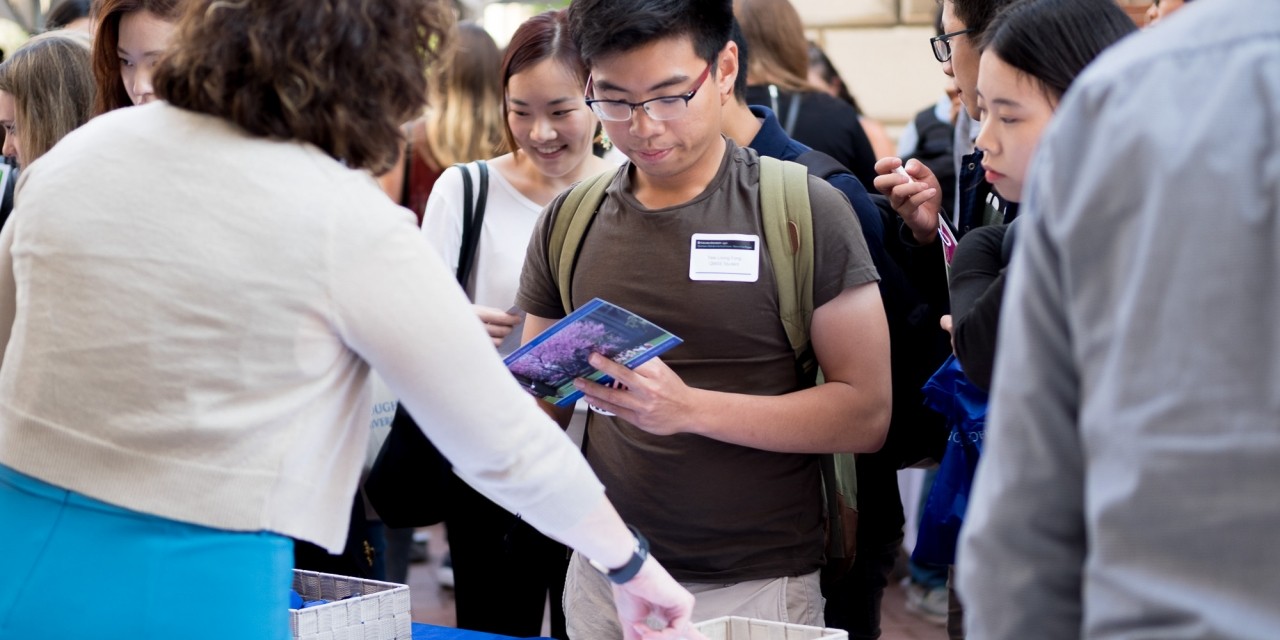Essential Advice for New Master’s Students
The transition to graduate school can be daunting. To help you navigate your first several months at GSAS, we asked ten current and former Columbia MA program directors and coordinators to share their words of wisdom for incoming master’s students.

“Prioritize. When you arrive at Columbia, there will be a plethora of choices. The desire will be to take advantage of all the offerings and opportunities during your year(s) here. Make sure to keep your schedule manageable—aim for quality rather than quantity.”
—Line Lillevik, Director, MA/MSc program in International and World History
“Lead with what you want out of the degree intellectually. Within the first few weeks, go to all of your professors, introduce yourself, and talk about the set of interests and/or project you would like to make the centerpiece of your experience at Columbia. Say how you see that professor's class fitting into your plans, and which parts of the syllabus you especially hope will help. Representing yourself as a student in this way—not just motivated, but capable of specialization—really affects the quality of dialogue you have with the faculty.”
—Matthew Sandler, Director, MA program in American Studies
“Make sure to check your Columbia email regularly. This includes reading official emails from GSAS and your department. Each may offer somewhat different and at times similar, yet important, key messages for your success. Hitting delete or skipping reading the email may save you time in the moment, but in the end may take up more time than needed if you miss important information and deadlines.”
—Alysa Turkowitz, Executive Director, MA program in Statistics
“Get ready for lifelong learning. Prepare to learn after you graduate. Do not go for a prestigious/highly paid/powerful job where you use only the skills and knowledge that you already have. Soon those skills and that knowledge will be outdated, and then you will be toast.”
—Lars Tyge Nielsen, Director, MA program in Mathematics of Finance
“Keep in mind that your peers are an important resource and that your time at Columbia is an opportunity to start building a network of friends and colleagues with whom you may collaborate later in your career. I graduated from Columbia’s MA in Art History program fourteen years ago, and still occasionally work on projects with curators and academics who were in my MA cohort.”
—Frédérique Baumgartner, Lecturer and Director, MA program in Art History
“You normally do not need an appointment for posted faculty office hours… but you do need to knock loudly. Most faculty do not have X-ray vision, and will not know that you have been sitting there patiently waiting for twenty minutes.”
—Adam Kosto, Director, MA program in Medieval and Renaissance Studies, and Professor of History
“If you are planning to apply quickly to PhD programs, take particular care to cultivate good relationships with faculty in the fall, as you will need to ask for reference letters that will speak to your achievements at Columbia in just a few months!”
—T. Austin Graham, Associate Professor of English and Comparative Literature
“Live in the moment. Process is more important than outcome in the early stages of an academic career. Commit to learning from the trial and error involved in research rather than seek an all-encompassing answer to your question. And stay light on your feet. Bike around the city, climb, swim, dance, because you need to step away from the books so that you can bounce back with renewed energy and openness to the unexpected.”
—Denise Milstein, Director, MA program in Sociology
“Find reasons to check in with your program faculty and staff from time to time, even if you feel like you are on top of everything. If you are on their radar, they will be more able to connect you with opportunities and resources as they become available.”
—Meghan D. McCarter, Program Coordinator, MA program in Quantitative Methods in the Social Sciences
“Point your MA studies—your courses, but especially your research and thesis—toward your ultimate goal and true passion, so that your time and effort expended in the program become a firm stepping stone on the path to achieving your desired goal.”
—Lili Yamasaki, Director, MA program in Biotechnology
